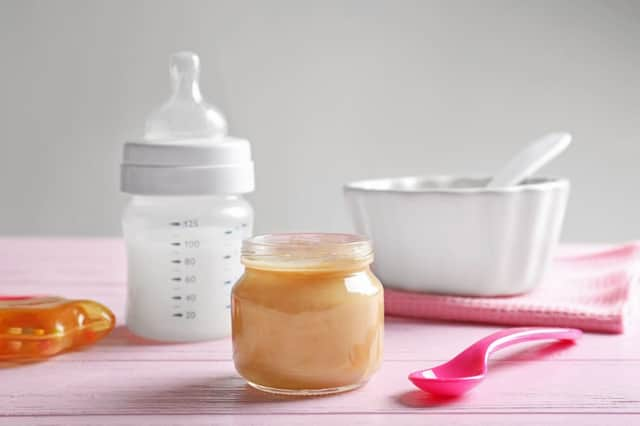The price of formula milk and baby food could go up next year - here’s why


Parents could see themselves facing higher costs on baby food and formula milk after Brexit, due to the introduction of import tariffs.
The Government is planning import tariffs of up to 17 per cent after the end of the Brexit transition period.
Advertisement
Hide AdAdvertisement
Hide AdThe British Specialist Nutrition Association (BSNA) exposed these higher tariffs, and is now appealing to the Government to get rid of the plans, reports iNews.
Under the EU’s common external tariff, baby food and formula milk are currently zero-rated, but from 1 January 2021 - which is the end of the Brexit transition period - the Government is set to introduce a UK global tariff (UKGT).
Almost 90 per cent of specialist nutrition products, which includes formula milk, are imported from the EU. The BSNA explained that the Department for International Trade had previously said it wanted to keep tariffs at zero for products which are largely manufactured outside the UK.
How much more will baby food and formula milk cost?
The BSNA said that the tariff on baby foods could average 17 per cent on the price of the product, and up to six per cent on baby milk.
Advertisement
Hide AdAdvertisement
Hide AdThe overall cost to UK consumers of the tariffs on both baby food and formula would be £71 million per year, according to the association, with an extra £49 million on the cost of baby food and £22 million on formula milk.
High tariffs on food used for tube feeding
Ministers are also planning higher tariffs on the specialist pureed food, which is used for tube feeding for intensive care and cancer patients. Tariffs could increase to an average of eight per cent. This could cost the NHS an extra £35 million a year.
The BSNA said in a briefing document, “BSNA members are therefore concerned that significant tariffs may be applied to specialist nutrition products even if a UK-EU FTA cannot be agreed within the set timeframe, risking increased costs on the NHS and families.”
However, a Government spokesperson told iNews, “As of January 2021, the tariffs applied to baby food, formula milk and medical nutrition will be the same or lower than what the EU currently applies.
“Our new Global Tariff will benefit UK consumers and households by cutting red tape and reducing the cost of thousands of everyday products.”